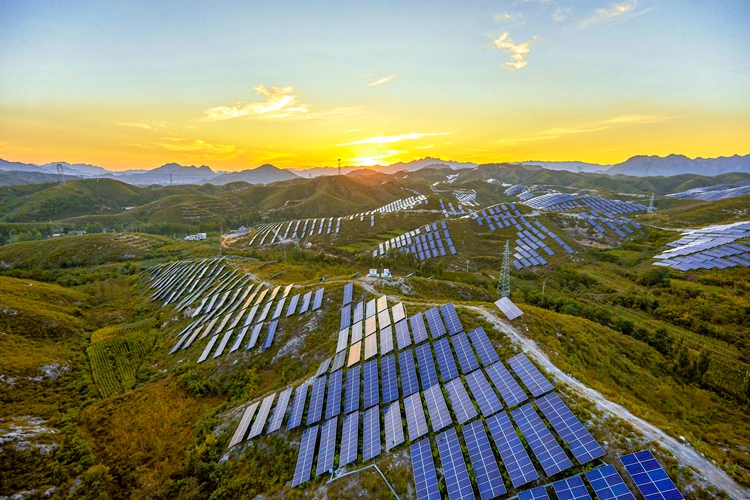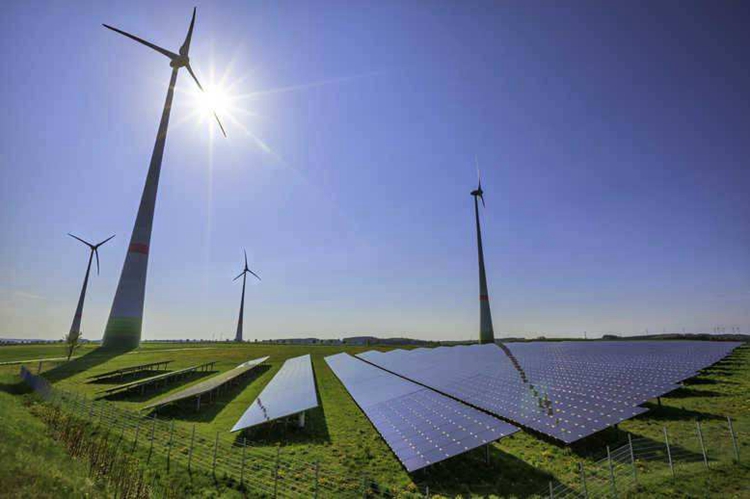At present, fossil fuels are still the main source of power generation in Africa. In recent years, African countries have endeavored to promote energy transformation by strengthening international cooperation and other means.
Experts believe that China has played an important role in Africa's energy transition. Over the years, China has helped African countries develop renewable energy and improve power infrastructure through technology transfer, project cooperation and financial support. China-Africa energy cooperation is gradually deepening, providing strong support for the transformation of Africa's energy structure and showing broad prospects for cooperation.
At present, African countries have different levels of power infrastructure development, and regional development differences are large. According to the Africa Energy Outlook 2022 report released by the International Energy Agency, as of 2021, 600 million people in Africa do not have access to electricity, i.e., 43% of the population is not covered by the electricity network, of which 590 million people live in sub-Saharan Africa.

Also according to data released by Germany's Statista data platform, as of 2021, northern Africa has better electricity coverage at 98%; eastern, southern and western Africa have between 52% and 56%; and less than one-third of people in central Africa have access to electricity.
In view of the global trend towards a transition to renewable energy sources and the impact of fossil energy use on the environment in Africa, the AU and more than 40 African countries have set energy transition targets. However, Africa's power production transition still faces a number of challenges, including a lack of investment in power infrastructure and a shortage of skilled personnel.
In terms of investment, Africa will receive only 3 percent of global energy investment between 2010 and 2020, with only 0.5 percent of that investment going to transmission and distribution networks, according to a Deloitte Touche Tohmatsu report released last October. To achieve full access to modern energy in Africa by 2030, the region would need $25 billion in annual investment, according to figures cited in the report.
In terms of talent, many countries have a severe shortage of talent pools for project and system design, installation and maintenance, especially in the area of new technologies. Talent shortages hindered the introduction and effective implementation of new technologies, slowed down the energy transition process, and increased the overall risks and costs of projects.
Experts believe that against the backdrop of the challenges of Africa's energy transition, China-Africa cooperation in the field of renewable energy will continue to deepen, especially in solar and wind energy.

The Africa Energy Outlook 2022 report noted that Africa's installed solar capacity is expected to grow significantly by 2030.
Chinese companies are helping African countries realize this growth through mutually beneficial cooperation. In Kenya, the Garissa PV plant, the largest PV plant in East Africa constructed by Chinese enterprises, has an average annual power generation capacity of more than 76 million kilowatt-hours, which can reduce about 64,000 tons of carbon dioxide emissions annually. In South Africa, the Dea wind power project constructed by Chinese enterprises has been connected to the grid, with a total installed capacity of 244,500 kilowatts.
According to the white paper “China's Energy Transformation”, China continues to expand open cooperation, and more than 100 countries and regions to carry out green energy projects, nuclear power, hydropower, new energy and a large number of landmark projects have been completed and put into operation one after another, and the export of wind power and photovoltaic products in 2023 has helped other countries to reduce carbon dioxide emissions by about 810 million tons.
Liu Tiannan, associate professor of the French Department of the School of Foreign Languages of the China Institute of International Relations and head of the Institute of African Studies, said that the development potential of renewable energy in Africa is huge. In recent years, renewable energy and green development have been repeatedly mentioned at the Forum on China-Africa Cooperation, the Belt and Road Forum for International Cooperation and other important international occasions. In the future, China will further expand its cooperation with Africa in green and low-carbon industrial technology, and provide more African countries with opportunities to enter the clean energy market. This will not only meet Africa's fast-growing energy demand, but also reduce dependence on fossil fuels and improve the stability of energy supply.

